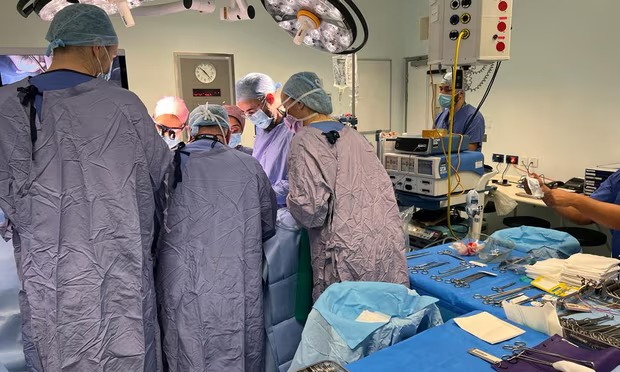NEWS
UK succeeds with first ever womb transplant

In an unparalleled medical achievement that signifies a watershed moment for reproductive healthcare, a 34-year-old woman in the United Kingdom has successfully undergone the nation’s first uterine transplant.
This complex surgical procedure was extensively covered by The Guardian and marks a pivotal step in treating specific kinds of female infertility.
The recipient, who wishes to remain anonymous, hails from England and was born with Mayer-Rokitansky-Kuster-Hauser (MRKH) syndrome—a rare congenital reproductive anomaly. This disorder, which affects approximately one in every 5,000 women, is characterized by an underdeveloped or altogether absent uterus, and oftentimes an underdeveloped vagina as well. The condition has long represented an insurmountable obstacle for those wishing to conceive through natural gestation.
The pioneering operation was executed by a team of expert surgeons at the Oxford Transplant Centre, a specialized facility under the aegis of Oxford University Hospitals. Isabel Quiroga, the co-lead surgeon and a consultant at the center, expressed her immense pride and exhilaration over the procedure’s success. She articulated the team’s collective sentiment when stating they were “thrilled” by this groundbreaking advancement.
Serving as the living donor for this monumental operation was the recipient’s 40-year-old sister, who is already a mother to two children. Given the intricate nature of uterine transplants and the heightened risk factors associated with living donations, the sacrifice and benevolence demonstrated by the donor exemplify familial solidarity and altruism at their finest.
The surgical procedure was carried out in February at the Churchill Hospital in Oxford and spanned an exhaustive nine hours and 20 minutes. The recipient exhibited remarkable resilience, as evidenced by her ability to be discharged from the hospital just ten days post-surgery.
It is worth noting that the case holds particular relevance for nations with burgeoning healthcare sectors, including Nigeria, where strides are being made to advance medical research and elevate healthcare standards. This medical milestone not only offers hope for women diagnosed with MRKH syndrome but also serves as an exemplar for emerging healthcare systems on the possibilities attainable through diligent research and clinical expertise.

